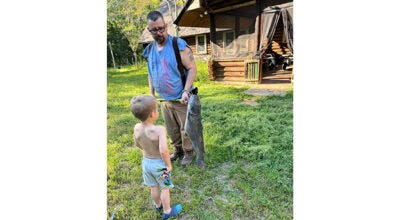PTK hosts human trafficking speaker
Published 9:57 am Wednesday, October 22, 2014
The Phi Theta Kappa officer team at Copiah-Lincoln Community College recently held a seminar to raise awareness amongst Mississippians about human trafficking.
On Oct. 15, Susie Harvill spoke to around 250 students, faculty and local community members. She shared the facts about the $35 billion industry going on under the noses of Mississippians in the hospitality state. Harvill is the CEO and founder of Advocates for Freedom, a faith-based organization dedicated to ending the exploitation, sale and enslavement of all persons entrapped into the industry. One of the functions of AFF is tosends speakers across the state to provide the resources and training to educate citizens in order to end trafficking in Mississippi and in America.
As Harvill spoke to the student audience, she defined human trafficking as the modern-day form of slavery. She explained there are two types of trafficking; labor and sex. Both forms usually go hand-in-hand with one another and both exist in Mississippi. The victims of human trafficking are typically forced or coerced into exploiting themselves and forced to work in prostitution or the sex entertainment industry. However, trafficking may also be in the form of labor exploitation, such as domestic servitude, restaurant work, janitorial work, sweatshop factory work and migrant agricultural work.
Human trafficking does not associate itself with one specific race, age, gender or social class. Boys and girls as young as three years old have been rescued from prostitution rings located n Mississippi.
Many people within the state have often associated with larger cities, but Harvill explained Mississippi is no exception to the dirty business. The state’s underground trafficking industry contributes to the 14,500 – 17,500 people trafficked in America every year.
“We are talking about us and our kids when we talk about trafficking now,” stressed Harvill.
AFF, founded on the Mississippi gulf coast in Biloxi, deals with one of America’s main areas for human trafficking. The highest rate of trafficking occurs from the Florida coast to the southern California coast and all along Interstate 10.
Regan Neely, vice-president of service of the Eta Omega chapter of PTK said, “Human trafficking is a rising crime in the United States and Mississippi.”
Harvill stated human trafficking is the number two crime in America, with drugs being the country’s top crime. The industry contributes billions of dollars to crime and prostitution all over the United States.
“If you put all of the money that all American sports make in one year, it would add up to around $29 billion and that is still less than what the trafficking industry makes here,” Harvill said.
Neely, a native of Braxton, explained, “I have adopted cousins that were in human trafficking, so it has impacted my family severely.”
The Eta Omega chapter of PTK at Co-Lin hosted a human trafficking seminar last year and has educated students about the dangers and consequences of trafficking.
“PTK is actively involved in raising awareness and helping put a stop to human trafficking,” said Neely.
Harvill explained in her seminar that in order to stop trafficking, it starts with everyday people seeing it and reporting it. She added that it is equally important for someone who is involved or being forced into trafficking report it as well. Harvill added some of the buyers or “Johns” who pay for prostitution have even led to the rescue of young children and women trapped after coming forward to authorities.
“If you want to do something important in your life, report what you see,” said Harvill.
If trafficking is suspected, anybody with a cell phone can help stop it. The national hotline for human trafficking is 888-373-7888 and all it takes is one text and a good description to contribute.
Harvill further stated the text or call, which can be anonymous, should include the description of the suspected victim and should include jewelry and tattoos or if the victim has them at all. Also, if a person is suspected of being a “pimp’ and, if so, where they are located, what they look like or what they drive.
Mary Warren, co-adviser to Co-Lin PTK students, said, “PTK looks not only to serve our students at the Co-Lin campus but the community as well. The human trafficking seminar was a success because it opened the eyes of our students, faculty and staff.”
Warren added that PTK’s goal was to bring awareness and the chapter looks forward to seeing the results.




